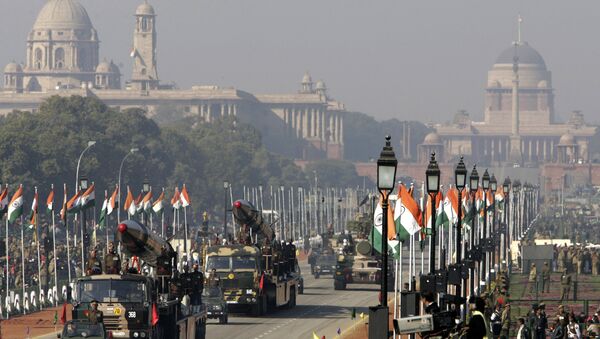While visiting Pokhran in western Rajasthan, the site of India's first nuclear tests in 1998, Defence minister Rajnath Singh suggested that India might possibly change its nuclear doctrine in the future.
"Till today, our nuclear policy is 'No First Use'. What happens in future depends on the circumstances," media reports quoting Singh as saying.
Pokhran is the area which witnessed Atal Ji’s firm resolve to make India a nuclear power and yet remain firmly committed to the doctrine of ‘No First Use’. India has strictly adhered to this doctrine. What happens in future depends on the circumstances.
— Rajnath Singh (@rajnathsingh) August 16, 2019
India first tested its nuclear capability at Pokhran in 1998 when Atal Behari Vajpayee was Prime Minister. Rajnath Singh was in Pokhran on Friday to pay homage to Vajpayee on the first anniversary of his death.
Singh’s comments were seen as a response to Pakistan Army Chief General Qamar Javed Bajwa’s recent statement, saying that the “Pakistan Army firmly stands by the Kashmiris in their just struggle to the very end. We are prepared and shall go to any extent to fulfil our obligations in this regard.”
Current Indian Prime Minister Narendra Modi has also indicated that New Delhi could revisit its nuclear option. During his election campaign in April 2019, Modi told party workers that he would not give in to "Pakistan’s nuclear blackmail."
The current escalation of tensions between India and Pakistan began on 14 February, when 40 Indian soldiers were killed in a terror attack in Jammu and Kashmir, allegedly by Pakistan-based Jaish-e-Mohammad. India retaliated with air strikes on what it said was a terrorist training camp in Pakistan.
Tensions rose further earlier this month when India stripped Jammu and Kashmir of its special status. Pakistan insists that it is a stakeholder in Kashmir and that any unilateral decision by India is unacceptable. Islamabad has subsequently scaled back diplomatic ties, blocked rail and road communication and cut trade with India.




